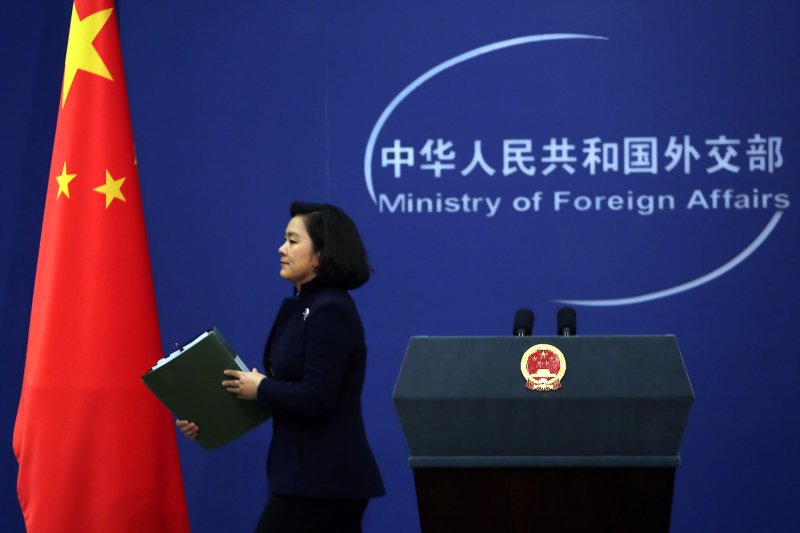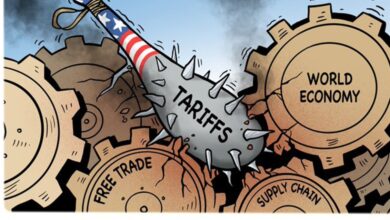China issues warning to Japan against backing NATO expansion in Asia: ‘Let the wolf…’

China issues warning to Japan against backing NATO expansion in Asia: ‘Let the wolf…’
In an exclusive interview with TASS, Chinese Ambassador to Russia, Zhang Hanhui, issued a strong warning to Japan and other nations contemplating the expansion of NATO into the East and Asia-Pacific (Indo-Pacific) regions. The ambassador’s remarks echo China’s consistent concerns regarding the potential consequences of introducing the US-led alliance into this crucial area.
During a candid and exclusive interview with TASS, Chinese Ambassador to Russia, Zhang Hanhui, expressed serious reservations to Japan and other countries that are considering the expansion of NATO into the East and Asia-Pacific (Indo-Pacific) regions.

The ambassador’s strong statement reflects China’s consistent apprehensions regarding the potential repercussions of introducing the US-led alliance into this strategically important area. China perceives such an expansion as a possible threat to regional stability and its own sovereignty, and it views it as a manifestation of the US military presence and influence in the region.
This issue highlights broader concerns about geopolitical dynamics and security in the Indo-Pacific, and it has the potential to spark further discussions and debates among nations with vested interests in the region’s future.
The recent discussions within NATO regarding the establishment of a liaison office in Japan have brought attention to the intricate dynamics influencing the alliance’s decision-making. The proposal received serious consideration in Tokyo, indicating Japan’s interest in enhancing cooperation and engagement with NATO in the Indo-Pacific region.
However, France’s opposition has introduced a significant obstacle to the plan, as it firmly argues that NATO should maintain its focus and operations within the confines of the North Atlantic region.
This difference of opinion reflects the broader debate within NATO about the organization’s global role and reach. Traditionally, NATO has been primarily focused on addressing security challenges in Europe and the North Atlantic area. However, as the geopolitical landscape evolves and new threats emerge in other regions, there have been calls to adapt NATO’s mission and activities to address these changing realities.
Japan, as a key player in the Asia-Pacific region, seeks to strengthen its partnerships with like-minded nations and international organizations to promote stability and security in the area. A NATO liaison office in Japan could serve as a platform for enhanced communication, information sharing, and potential joint operations between NATO and Japan, while also signaling NATO’s engagement in the Indo-Pacific region.
On the other hand, France’s opposition reflects concerns about diluting NATO’s focus and resources away from its core responsibilities in Europe. Some member countries might be cautious about NATO becoming too involved in areas beyond its traditional sphere, as it could potentially strain resources and create strategic challenges.
As NATO continues its internal deliberations on this matter, finding a balance between responding to global security challenges and maintaining its core mission will be a complex task. The alliance will need to consider the interests and concerns of all member states while ensuring that any expansion of activities aligns with NATO’s overall objectives of collective defense and security.
China’s opposition to NATO’s potential expansion into the East and Asia-Pacific region is rooted in a combination of geopolitical, historical, and strategic considerations. China views the presence of NATO in the region as a direct challenge to its sphere of influence and regional interests. The Asia-Pacific area holds significant strategic importance for China due to its economic growth, trade routes, and access to vital resources.
China is concerned that NATO’s presence in the region could impede its efforts to increase its influence over regional affairs and resources. The alliance’s involvement could potentially disrupt China’s plans for greater economic and strategic control in the area.
Moreover, China perceives NATO’s expansion as part of a broader strategy to contain its rise as a global power. The potential strengthening of military capabilities of countries in the region through NATO cooperation might align them with the United States, altering the strategic balance in a way that China considers unfavorable.
This opposition reflects China’s broader approach to safeguarding its sovereignty and national interests. China aims to maintain regional stability while advancing its economic and political influence. The prospect of NATO expansion in the Asia-Pacific region raises concerns about potential geopolitical tensions and the risk of regional conflicts.
As a major global player, China seeks to protect its core interests and respond to what it perceives as external pressures that could impede its growth and development. The issue of NATO’s expansion in the East and Asia-Pacific region highlights the complexity of international relations in a rapidly changing world, where the interests of different nations often intersect and clash.




